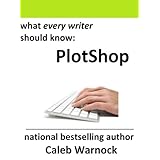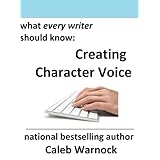Welcome back everyone. If you haven’t already, make sure to read Part 1, G is for Gardening with Caleb Warnock. I’m still here with Caleb Warnock. I’ve been attending his writing classes locally for six months, since mid-October 2011, and I can honestly say that if I hadn’t, I would not have been picked up for publication. My writing would still be falling under the category of long lost word files. Caleb doesn’t believe in sugar coating, except on his chocolate. But his tell-it-like-it-is attitude is something that, for me at least, promotes growth once the dead weight is burned away.
Betsy: So Caleb, if you wouldn’t mind, give our online audience a quick breakdown of your writing credentials. As in why the heck should we listen to you, aside for the whole best-selling author bit?
Caleb: Well you can check out my blog at CalebWarnock.blogspot.com for my full curriculum vitae and see a full list of credentials. But here’s a few highlights. I’ve won over 20 awards for my writing, including the David O McKay Essay Contest. I’ve been nationally published for the past 13 years, including publication in The Writer magazine. As you’ve mentioned, I currently have a bestselling book and 7 more book contracts — two of those co-authoring with you, Betsy. I’ve taught at UVU, and U of U, and I’ve owned my own writing school at WritingInDepth.com for the past 13 years as well.
Betsy: Haha. Ok ok, we’ll trust you. What the biggest difference you see in newbie authors writings as opposed to experienced authors?
Caleb: Hmm, I was having a conversation just the other day about this actually. I see a huge difference in the writers that write for fun and the writers that write to put food on the table. I belong to the latter group. I tell people I’m a retired farmer. I grew up digging ditches on a farm and retired at 19. Writing is what I love to do, and I’ve learned that when you’re forced to produce or starve, the writing improves dramatically. It has to be good to sell. There is a difference between being a writer and simply wanting to be a writer because you get excited to hang out with authors and talk about writing.
Betsy: What’s the biggest hurdle for an unpublished writer to overcome?
Caleb: Fear of failure. Giving in to all the voices, both in your head and not. Giving in to the discouragement because you didn’t get picked up by an agent on your first try. People don’t often realize that it takes blood, sweat, and tears. Most authors don’t just plunk down a story and wham, you’re a bestseller. It’s like being a concert pianist. There may be a virtuoso once in a blue moon, but most musicians have to practice and hone their craft for years and years before they even consider playing to sold out crowds. Being a bestselling author is the equivalent to selling out Carnegie Hall. You have to work for it.
Betsy: What advice would you give to someone who has five partial manuscripts in their drawer and dreams of becoming an author, but is afraid of rejection. (This was me).
Caleb: Go to a writing class with a teacher who will tell you the truth, and not just tell you what you want to hear. If your story is collapsing, help is out there. I had a teacher at BYU, and when she died, her obituary said she had three manuscripts in her drawers. And she had never been published. If that happened to me, I would be so mad I would come from the grave. Don’t let anyone write that in your obituary. Go find some help.
Betsy: In a previous post, I mentioned that a friend has nicknamed me the Voice Doctor. Well, I would have to nickname you the Plot Doctor. Everyone comes to you because their stories have collapsed in the middle. Why does that happen, what’s the diagnosis?
Caleb: Because no one has ever taught them how to structure a story, fiction or nonfiction. People think writing is creative, organic…art. To not plan out your story would be akin to picking up a brush, putting it in some paint, then putting it directly on the canvas– with no idea of what you’re going to paint. That’s the fastest way to ruin a canvas and a story. Artists sketch and plan. Writers plan and plot. You have to know where your story is going before you put pen to paper. I teach people the bones of plotting and structuring stories.
Betsy: You have taught a weekly writing class for writers of all skill levels for the past four years. But not everybody lives in a place so easily accessible to a mentor such as yourself. How can someone in the sticks find their own Guru. (hint hint…shameless plug).
Caleb: Well, I have online writing workshops for $50 a month. If people are interested they can email me at calebwarnock@yahoo.com. I’ve been teaching those online workshops for 13 years, and those classes got bigger after Becca Fitzpatrick, author of the national bestseller Hush, Hush was a student and thanked me in the acknowledgements of her fantastic book. The class has also helped published authors like yourself, Nebula award winner Eric James Stone, and many more. Just this year, I put all of my writing workshop lessons on Kindle and Nook. There are eleven booklets in all, part of my What Every Writer Should Know series. Each is $9.99, which far cheaper than you can get them through me, mostly because that’s as much as Amazon would let me charge. I think is a tremendous value, but I’m biased. The lessons cover just about everything. Marketing, Query Letters, PlotShop, Narrative Voice, and more. I think the first two lessons anyone should pick up are PlotShop and Creating Narrative Voice. These can save your stories.

————————————————————–
Thank you to all my readers from both Mormon Mommy Writers and this blog for stopping by. And thank you to Caleb Warnock for taking a few minutes out of his insanely busy schedule to sit down and chat with me. Below I will list the places once again where you can find Caleb and his books. Also please feel free to leave comments. Even if they’re about chickens.
Tag: rejection
The Value of Critique Groups
Today I want to talk about the best two parts of my weekend– the PEG Live Critique Workshop and The Lorax. Specifically that everyone needs to see that movie, and all writers should participate in some kind of critique group.
So this Saturday I went to a Critique Workshop. It was in the American Fork Library, hosted by Precision Editing Group. Otherwise known as the awesome supergroup of the following ladies: (left to right) Luann Staheli, Heather Moore, Julie Wright, Annette Lyon, Josi Kilpack
http://www.precisioneditinggroup.com/
I’m not gonna lie. I had a little bit of a fan geek moment when put in the same room as the superauthors. They are all beautiful talented amazing women and award winning authors. Basically they’re what I want to be when I grow up. (although I’m pretty sure a few of them are younger than me)
There were about 20 or so of us students. I had no idea what to expect. I had brought the first two chapters of my fiction work in progress. (more details to come) I wasn’t sure what other kinds of writers would be there. Imagine my surprise to come across M.L. Forman. He’s the author of one of my fave new series Adventurers Wanted. I geeked out again. My brain and tongue froze and I’m sure I said something really stupid. He was there as a student. Not an instructor. He sells like a gagillion books and he needs help too?
Talk about humbling.
And then the red pen comes out. Having been a musician first, I have had my fair share of constructive criticism. I’ll give you a hint, the more you get … doesn’t get easier. It’s still heart palpitating nerves and chattering teeth for me. Getting peer reviews and feedback can be scary. You’re vulnerable. Here you are, handing over some precious piece of your soul over to someone else to literally rip apart. What if they think I suck? What if they don’t like me? What if they take one look at what I’ve written and secretly scoff and wonder how on earth I managed to get published?
This is where the other part of the weekend comes it: The Lorax. Great movie. It loved it. I love one line in particular and want to share it because it applies perfectly.
“It’s not about what it is, it’s about what it can become.”
 If we never allow our manuscripts to be deconstructed a bit, they will remain as seeds — never growing to their full potential. I can take each slash of red pen, bleeding on my white paper, as an injury or mark against my abilities as a writer. Or I can see each stroke as proof that my book can become even stronger and better than I ever thought it could be.
If we never allow our manuscripts to be deconstructed a bit, they will remain as seeds — never growing to their full potential. I can take each slash of red pen, bleeding on my white paper, as an injury or mark against my abilities as a writer. Or I can see each stroke as proof that my book can become even stronger and better than I ever thought it could be.
Yes, it can be scary. It might sound better to tuck your life’s work in a drawer so it will never have to face the harsh light of day. Heck I feel that way about my kids sometimes. But in both cases, without the light, there is no opportunity for growth.
So find a lorax, or a group you can share with. Form a critique group or see if you can join one already in progress. Talk to your writer buds on Facebook. Do it by email if no one lives close to you. But don’t keep your writing to yourself because of fear that it’s not perfect as it is. Grab insight from others so you can catch a glimpse of what it can become.


